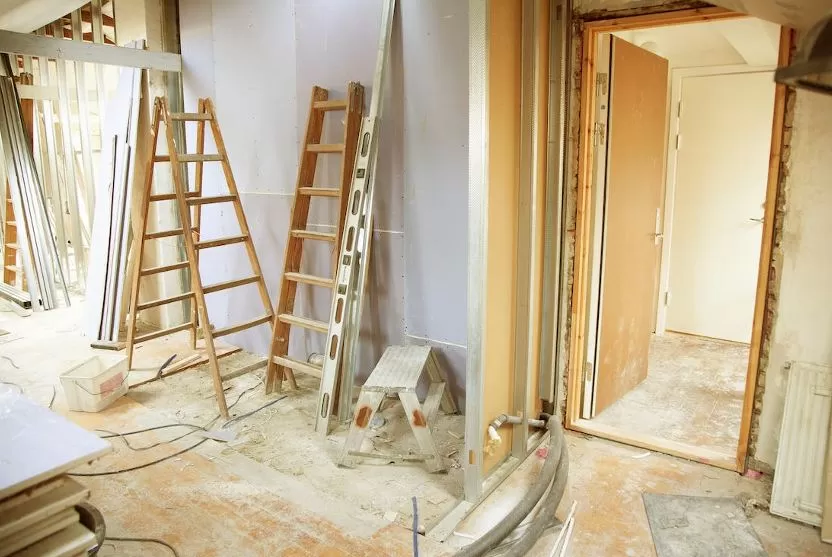Helpful Ways To Estimate The Cost Of Your Home Renovation Projects
It’s always exciting to start a home renovation project. The possibilities are endless and the sense of accomplishment you feel when it’s all finished is unbeatable. But before you start swinging that sledgehammer, there are a few things you need to take into account: how much the renovation is going to cost and whether or not you can afford it.
There are a lot of factors that go into estimating the cost of a home renovation project, from the size of the job to the materials you choose to use.
This article will walk you through everything you need to know to get an accurate estimate for your next renovation project.
Determine the scope of the project
Signs of house settlementcan often be subtle at first but early inspection by a professional can significantly lessen the cost of repairs in the long run. Identifying these signs early allows homeowners to address foundation issues promptly, preventing further damage and more expensive repairs down the road.
The first step in estimating the cost of your home renovation is to determine the scope of the project or what exactly are you planning to do. Are you adding an addition to your home or simply renovating a room? Maybe you’re planning a complete gut renovation of your home. Once you know what work needs to be done, you can start to get an idea of how much it will cost.
For instance, a minor kitchen renovation will cost much less than adding an addition in form of a sunroom to your home. Of course, there are always unforeseen costs when undertaking any type of construction so it’s important to have a contingency fund set aside in case you run into any issues.
Get quotes from contractors
The next step is to get quotes from contractors or companies that specialize in home renovations and it’s important to get at least three quotes.
Be sure to provide the contractor with the same scope of work so you can compare their estimates more easily. If you need to request a foundation repair quote, have in mind that renovation costs can vary greatly depending on the contractor you choose as well as the materials you select. For instance, waterproofing your basement is a job that will require different materials and therefore will have a different price tag depending on the company you hire.
Once you have your quotes, you can start to narrow down your choices by taking a look at their credentials, reviews, and experience. It’s also important to make sure that they are licensed and insured in case anything goes wrong during the renovation.
Once you have your quotes, you can start to narrow down your choices and make a decision based on your budget.
Materials
The cost of materials is another important factor to consider when estimating the cost of your home renovation. The price of materials can vary depending on where you live, the type of materials you select, and whether or not you need to have them shipped. Stone countertops might be less expensive in one part of the country than tile countertops in another, while hardwood floors might be less expensive to install in a home in the south than they would be in a home in the north.
You can save money on materials by shopping around and comparing prices or by working with a company that specializes in home renovations and can get bulk discounts on materials. You can also try to find recycled materials or salvage items that can be used in your renovation.
To get an accurate estimate of the cost of materials, it’s important to consult with a professional or the company you’re planning on purchasing the materials from. They will be able to give you a more accurate price based on your location and the type of materials you’re interested in using.
Labor
In addition to the cost of materials, you also need to factor in the cost of labor because it can also vary depending on the type of work that needs to be done and the experience of the contractor or workers you hire. Of course, a contractor who specializes in kitchen renovations will charge more than a general handyman.
However, you can save money on labor by doing some of the work yourself or by hiring a company that offers discounts for referrals or repeat customers. You can also try to find workers who are willing to trade their services for other goods or services you might have to offer.
Permits and fees
Another factor you need to consider when estimating the cost of your home renovation is the cost of permits and fees.
Depending on the type of work you’re planning to do, you might need to get a permit from your city or county. For instance, if you’re planning to add an addition to your home, you will need to get a building permit. Or, if you’re planning to do any work that involves electrical, plumbing, or gas lines, you will need to get specialized permits.
The cost of permits can vary depending on the type of work you’re doing and the municipality you live in, but they can range from a few hundred dollars to a few thousand dollars, so it’s important to factor this into your budget as well. You might also need to pay fees for inspections and other services related to your renovation, especially if you plan on selling it later.
Contingencies
Finally, you need to factor in contingencies when estimating the cost of your home renovation because there is always the potential for unforeseen problems or delays that can increase the cost of your project.
For instance, if you’re doing a major renovation, such as an addition, and the foundation of your home needs to be repaired, that will add to the cost of your project. Or, if you need to have custom materials or finishes made, there could be a delay in receiving them that could lengthen the duration of your renovation and increase the cost.
Additionally, if you have to move out of your home during the renovation, you will need to factor in the cost of temporary housing.
A good rule of thumb is to budget an additional 10-20% of the total cost of your project for contingencies as this will help you to avoid going over budget if there are any unexpected problems or delays.
Home renovations can be a major expense, but by planning and considering all of the factors involved, you can create a budget that will fit your needs. By shopping around for materials, labor, and permits, and by factoring in contingencies, you can get an accurate estimate of the cost of your renovation project so it doesn’t break the bank.










